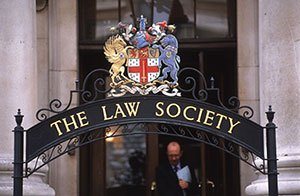The Law Society of England and Wales abused its dominant position in the market for the provision of quality certifications and accreditations services to conveyancing firms in the UK, the Competition Appeal Tribunal (CAT) has ruled today (26 May).
The claimant, online training provider Socrates Training, issued the claim last year. It alleged that the Law Society’s requirement for law firms to buy anti-money laundering (AML) and mortgage fraud training from it as a condition to maintain their Conveyancing Quality Scheme Accreditation (CQS), which it claimed arose from early 2015, was anticompetitive.
Conveyancing firms have a statutory duty to provide their staff with AML training.
As a result of the judgment, the Law Society will have to pay Socrates Training damages and cease its anticompetitive conduct regarding the requirement.
The Law Society announced in a statement that it will reconsider the training elements of its CQS, as a result of the ruling.
It said that the CAT found that from April 2015, the Law Society should have permitted third party trainers to offer some of the modules for the scheme. The CQS was introduced in 2010.
The Law Society also confirmed that it has since withdrawn the Financial Crime module, the only one of the modules which concerned the CAT that was still being provided.
In a statement, Law Society president Robert Bourns said: ‘For the vast bulk of the time CQS training has been available it has been compliant with competition rules. I am certain that in setting CQS up, the Law Society acted in good faith and in the public interest.’
Bourns said the Law Society will be looking at the CAT’s guidance on changes to CQS and comments as a matter of priority in the coming days.
‘We note the decision and have and will take steps to avoid similar issues in the future.
Commenting independently on the case, Robert Vidal, Taylor Wessing’s head of competition and trade, said that ‘Chancery Lane will be littered with red faces.’
He added: ‘It’s mortifying that the body representing the legal profession in England and Wales has been found to have broken competition law for commercial advantage.’
The Law Society has ‘previously been criticised by the CAT for providing “shoddy” evidence to the court during an earlier hearing, which would have misled the Court had it not been challenged,’ he said.
‘This will be a huge blow to the Law Society’s reputation. Not only will it have to pay a significant amount of damages to Socrates, but it will now need to reconsider its commercial model,’ Vidal said.
A spokesman said the Law Society had not decided yet whether to appeal the decision and will first consider the judgment in full.
Damages will be determined at a later date, according to the Law Society. The issues arising in the case were split, with liability decided first.
In a turbulent start to the year for the Law Society, the organisation is also under pressure from a probe launched by the Legal Services Board (LSB) in February. The probe seeks to establish the level of independence the Solicitors Regulation Authority (SRA) has from the Law Society.
Read more about the Law Society’s work in the feature: ‘Taxation without representation’










